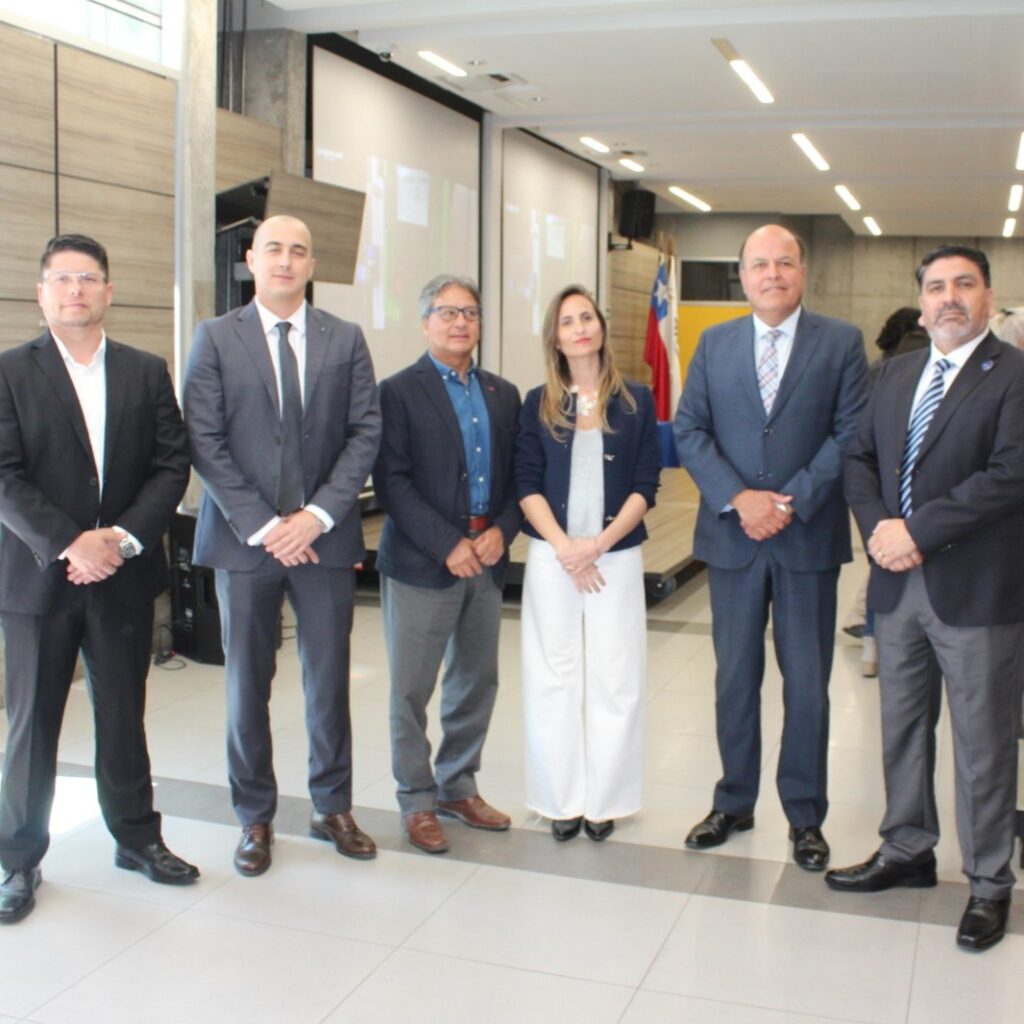- Students, professionals and academics from the Coquimbo Region will have the opportunity to learn about this project that allows the integration of direct current technology for electricity transmission.
- Among other areas of collaboration, this agreement will reinforce the importance of promoting high standards in safety culture, construction and maintenance of transmission lines.
More than two thousand students, graduates and academics from the Coquimbo Region will have the opportunity to learn and deepen their knowledge about the integration of direct current technology for electricity transmission in Chile. This is thanks to an alliance between the Education and Training Center of the Universidad Católica del Norte CEDUC UCN and Conexión Kimal-Lo Aguirre, the company in charge of the development, construction and operation of the transmission line that will strengthen the National Electric System (SEN) and facilitate a greater flow of renewable energies throughout the country.
The agreement promotes the transfer of knowledge, access to reciprocal information and that both professionals and students can participate in training and technology transfer activities, deepening research and academic development in the use of direct current, energy transmission, smart grids, and in matters related to safety, construction and maintenance of transmission works.
An example of this is the joint work that will be promoted in the training of future “Linieros or Linieras”, an initiative that promotes Conexión with a view to strengthening specialized human capital and where CEDUC UCN will support through training, the development of curricula, development of profiles, use of cutting-edge technology and other cutting-edge tools for the field.
During the ceremony, held before more than 200 students and academics of CEDUC UCN, representatives of the company gave more details of the HVDC direct current transmission project, highlighting the technical and preventive knowledge required for the construction, in addition to highlighting the safety culture defined by the company.
“In Conexión we want to promote specialized knowledge and innovation around energy, as well as to generate spaces where the academic world can share experiences with national and international protagonists and specialists, around the construction and operation of a transmission line, which is key for the energy transition of the country”, reinforced Sebastián Fernández, general manager of Conexión Kimal – Lo Aguirre.
“For the educational project of CEDUC UCN, the link with productive and social organizations that demand technicians for their work is key, which is why the challenge of attending the training of linemen or linemen from existing careers in the electrical area is a great opportunity for our graduates and regular students, ”said Carlos Sainz, Executive Director of CEDUC UCN.
For his part, the Coquimbo Energy Seremi, Eduardo Lara, emphasized that “it is very important that the companies and the student community collaborate together in the learning and challenges that a project like this will demand, which is very important for the Coquimbo Region and the country. As a government we are happy to collaborate and we hope that the project will soon see the light and start its construction”.
About CEDUC UCN
Technical Training Center of the Universidad Católica del Norte with 25 years of experience in quality higher education. We contribute to the development of people, training and improving highly qualified technicians for the various economic activities of the country, with a strong value component. It was founded in 1998 as an initiative of the Universidad Católica del Norte, with the purpose of forming higher level technicians and training people in areas of the same level.
About Kimal-Lo Aguirre Connection
Company formed to develop, build and operate the first direct current electric transmission line: Kimal-Lo Aguirre. It is a 1,346-kilometer transmission line that will operate in direct current and will strengthen the National Electric System (SEN), along with enabling significant flows of renewable energy by transporting up to 3,000 MW of power, equivalent to a quarter of the daily demand of the SEN.
